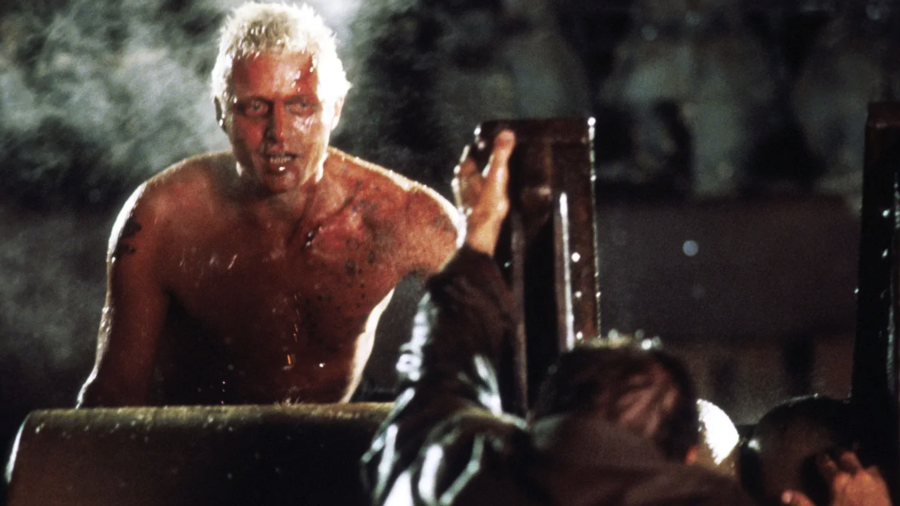Rutger Hauer Says He Wasn’t The Villain In Blade Runner

Any short list of the best, the most memorable, the most iconic villains of filmed science fiction has to include Rutger Hauer as Blade Runner’s Roy Batty in the top five, if not at the very tippy-top.
There are many reasons why. You’ve got the character on the page, courtesy of the screenplay by Hampton Fancher and David Peoples — adapting, of course, Philip K. Dick’s Do Androids Dream of Electric Sheep?
You’ve got the direction by Ridley Scott, guiding what in my opinion is the best movie of his career. And you’ve got the character as performed brilliantly by Rutger Hauer.
That character is the topic at hand in the 1982 interview with Rutger Hauer wherein he discusses the role. And once we get passed the shirt, we can hear his thoughts on Roy Batty. This is an interesting take.
Back in 1982 Rutget Hauer was interviewed by John C. Tibbetts. When the interviewer offhandedly describes Hauer’s murderous replicant Roy Batty as the villain of the film, the actor objects. Instead, Rutger Hauer sees Harrison Ford’s Deckard as the bad guy.
In part, Rutger Hauer says, “My idea of a villain is somebody who wants to do some nasty, bad things, and Harrison’s character…his motivation…he has to kill five Replicants, which we are, because they are sort of dangerous and they say they sort of found a spaceship and people got killed, but you never see that happen in the film. It’s just one of the stories they give you. [Replicants have] been given four years, and I’m enjoying life, and I want more than four. That’s the goal.”
Of course, Rutger Hauer as Batty does do bad things in Blade Runner, but Hauer touches on one thing that makes the character such a perfect screen villain. It’s been pointed out many times before that nobody ever really thinks they’re the bad guy, and when Blade Runner is viewed from the perspective of Batty and the other replicants, it’s hard not to be sympathetic. From that perspective, it’s easier to see what Rutger Hauer means.
They were screwed over and given a programmed-in death date. They were sent to do bad things their creators didn’t want to deal with themselves. Now they want to confront the man responsible and they want him to fix it. And if he can’t, they want him dead. Frankly, I can’t guarantee I’d do otherwise in their shoes. From that perspective, it’s easier to see what Rutger Hauer means.
Compare Rutger Hauer’s interpretation to what happens with Deckard. He’s told to kill the replicants. Full stop. Even if he’s not enthusiastic about the job, he never really questions it.
It’s the job. It’s inherently cold-blooded. After all, they don’t even call it killing. They call it “retirement.” Do good guys doing good things really need comfortable euphemisms like that?












